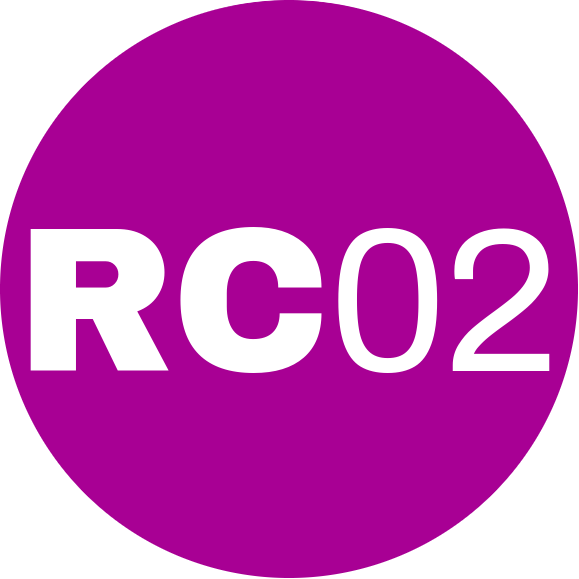Guest editors Ghassan Moussawi, Associate Professor, Sociology and Gender & Women’s Studies, University of Illinois-Urbana Champaign and Mary Romero, Professor Emerita, Justice & Social Inquiry, Arizona State University, invite papers for the planned Special Issue on ‘Authoritarianism, Resistance, Coloniality: Lessons from the Global South’.
Globalization of the economy, the growing right-wing regimes, and the reconfiguration of allies place the US and other western countries in crisis. US Sociology can no longer afford to rely on US or Euro-centric dialogue alone to theorize about the changing social order when sociologists in the global south have not only been facing this new order; they have also long produced scholarship on the resistance against authoritarian governments and regimes, empire, environmental destruction, and state violence. The aim in this special issue is to advance such global south conceptual frameworks and sociological knowledges, which have not been readily available to Sociological Forum’s readership and US sociology more generally.
This issue aims to center and engage knowledges and theories from the global south and or/colonized subjects - broadly conceived- to rethink and better understand the current moment we are living in. We use the “global south” and colonized subjects in a capacious manner. That is, the editors conceptualize the global south as a relational category that denotes lack of access to resources, especially for those who are or continue to be colonized, rather than as a geopolitical designation of regions (Cooper et al, 2021). They also recognize that colonized peoples live in both the global south and north. Given that coloniality is a condition that affects people’s dispossession and lack of resources, those who are colonized comprise the majority of the world’s population. As such, the editors encourage scholars who are part of the global majority—those living in the global south, as well as those who live in the global north and who are still colonized (people of color, indigenous scholars, etc..) – to submit papers drawing from and building on theoretical frameworks derived their structural positionalities.
The issue foregrounds the following: when it comes to our own socio-political moment, what do we have to gain and learn from resistance and dissent in the global south, whether anti-colonial, authoritarian regimes, anti-intellectualism, xenophobia, white supremacy, genocide, or scholasticide (Go 2023; Puri 2015; Said 1978)? What happens when the center of empire challenges itself to engage with these theories, producing more transnationally informed work from the south (Go 2020; Mignolo 2002)? For example, when we think of colonialism and coloniality, we tend to not consider colonized subjects in the US, which includes the majority of its people (Maldonado-Torres 2016). What does it mean to look inwards and critically interrogate how sociology as a discipline is central to epistemic hegemony by “exporting” knowledges to other places that scholars have to cite in order to publish or gain credibility (Bhambra 2014; Connell 2013; Go 2020; McKittrick 2021)? The editors suggest that any attempt to critically interrogate US sociology’s role in empire, and to understand theories of authoritarianism, coloniality and resistance, we must turn to those on the peripheries and who are subjected to such rule. As such, they invite scholars who highlight theories and knowledges from the global south and/or colonized subjects that help us better understand and theorize issues including but not limited to the competing political and socio-economic systems we live in, authoritarianism, attacks on trans rights, political economies of dissent, feminisms, empire, white supremacy, state violence, gender and sexualities, racial capitalism, and environmental devastation. In doing so, this special issue seeks to produce a volume with rich and multi-layered exchanges between and among scholars from the global south or colonized subjects living the global north. The call aims to publish pathbreaking conceptual frameworks and introduce bodies of work from the global south that eschew the usual divisions made in US sociology, per ASA’s list of sections.
The editors invite scholars to think with intellectual humility (Reyes and George 2022) about centering and engaging global south knowledges and what these tell us about broader structural issues. The list of topics is open, and include:
1. Nationalisms, Authoritarianism, and/or State Violence
2. Solidarities & Resistance
3. Subordination & Oppression
4. Feminisms
5. Colonialism and Settler Colonialism
6. Racism
7. Gender and Sexualities
8. Praxis and Knowledge Production
9. Immigration and Transnational Mobilities
Please submit extended abstracts (2-3 pages) by August 5, 2025. Each submission must engage with at least three sources from and/or by those in the global south. The sources can be in any language. The editors have limited resources for translation services for submissions if needed. To submit please send your abstracts to: socforumcoloniality@gmail.com
Tentative Timeline of CEF, Submissions, Reviewing, and Publication
• Date for Extended Abstracts submission: August 5, 2025
• Date the decisions will be sent: August 15, 2025
• Date of expected first submission: January 1, 2025
• Date first review round completed: March 1, 2026
• Date revised manuscripts due: May 15, 2026
• Date of completion of the review and revision process: July 15, 2026
• Date of publication: November 2026
For any questions, please email your queries to moussawi@illinois.edu and romeromargolis@gmail.com

